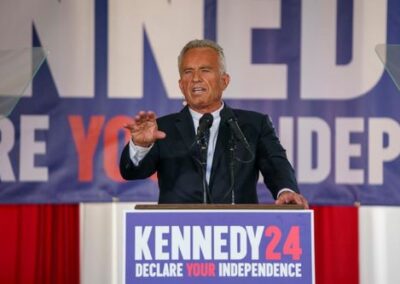I attended a day-and-a-half men’s conference at a church in Sacramento, CA, this May. On Friday night of the conference, the speaker, Jamie Winship, talked about Fear. Winship is a management consultant, the founder of Identity Exchange, and has years of experience working with foreign governments to bring peaceful resolution to areas experiencing high levels of conflict.
Winship asked, “What does a person’s life look like when that person is always in fear? Also, what does a nation look like when everyone is afraid all the time?”
Winship said that a nation living in constant fear exists in a constant compulsive repetition loop. That country never changes. It’s a country in fear of change. As a way of controlling collective anxiety, that nation keeps doing the same things over and over and over again, with nothing ever changing, hoping that what is feared most won’t come to pass. (Isn’t this the well-recognized definition of insanity? — Doing the same thing over and over, expecting a better result?) A country that lives in constant fear is one in which there are no new ideas, because people are afraid of the consequences of doing something different. It is a country that has no creativity, at least in government, where no one tells the truth, because if the truth were known, those disclosures carry their own sets of fears.
People who fear feel some area in their life is out of control. People are willing to trade control for security. In this era, people turn over control for the promise of protection from the government. And the government is more than willing to make that deal. But whereas government should keep domestic peace, keep us out of wars, adopt policies which fuel a strong and growing economy, and protect the rights of all, people know that government is failing on all these fronts, and more.
People fear because they don’t know everything that is going on, and they can’t control what they don’t know. And people are waking up to the apparent fact that our government is not telling the whole truth on a broad range of issues, not telling us what’s going on, which raises the level of fear.
Winship explains that every conflict, whether on the international stage or right down to one-on-one personal conflicts, are based on fear, adding that “We’ve come to a point in our country where we don’t know how to deal with anything except through conflict.”
Winship illuminates – and this is key – that fear points to the deepest, most entrenched lie that one believes. Lies about who we are, about our potential, about other people, about the world and how it functions, about peace and what peace requires. Fear is what unites people into tribes, in that members of a tribe share common fears and likely common lies about themselves and other tribes.
So, here comes Robert F. Kennedy Jr., unafraid to tell the truth, willing to propose new things, new directions. And the elites, the ones who are running the show, try to destroy his character, for instance portraying him as dangerous, because they know that as his campaign builds momentum, their grasp on power is over because they’ll never be able to again control the populace with fear.
On May 22, 2023, Kennedy posted on X/Twitter quoting Supreme Court Associate Justice Neil Gorsuch, who had spoken to seeming intractable issues in our country: “One lesson might be this: Fear and the desire for safety are powerful forces. They can lead to a clamor for action – almost any action – as long as someone does something to address a perceived threat.” Taking “any” action merely for the sake of doing something has never been a wise policy.
In a November 7, 2023, PBS interview, Kennedy credited his rise in the polls, and in particular his support from independents and voters between 18 and 45, to the weariness Americans have for the vitriol in politics. He concludes that many voters are responding positively to his insistence to discuss issues, to avoid being critical of his opponents, and to promote values that are shared by all Americans. “People really want to hear the truth,” Kennedy claims, and “feel they are being lied to by the media, and by government agencies that are supposed to be honest with the American people.”
If fear comes from believing lies, lies which act as agents that polarize Americans against each other, then a way to reduce fear is to speak the truth about the issues that we face, emphasize common values held by most Americans, and to refuse to go with politics as usual. In a June 2023 campaign statement, Kennedy declared, “My job is to tell the truth, and if Americans have an appetite for that, then I will be President.”
Speaking truth, pledging to make our government transparent, allowing and listening to divergent views, will reduce our endemic fear. This is what Robert F. Kennedy Jr. is basing his campaign on: A rejection of lies, a rejection of fear, an embrace of truth, a campaign of hope.


